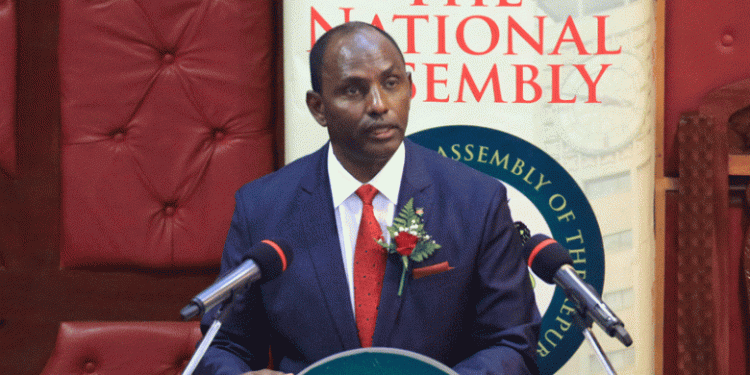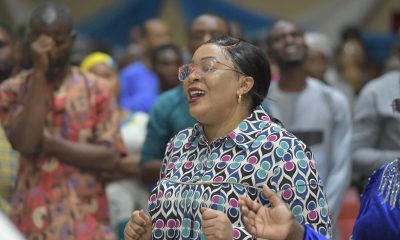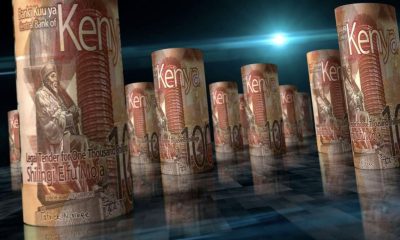News
How The Media And Betting Firms Are Used In Money Laundering

National Treasury Cabinet Secretary Ukur Yatani is expected to furnish the National Assembly departmental committee on Finance and National Planning with financial details, records of tax remittances to Kenya Revenue Authority (KRA), paybill issued by telecommunication firms and beneficiaries of broadcast gambling by local radio stations.
While raising private member’s question on the floor of the House today, Kiambaa legislator John Njuguna alias Ka-Wanjiku further demanded for a comprehensive breakdown of financial statements and revenue generated for the last one year.
He singled out Inooro FM, Kameme FM and Gukena FM owned by Royal Media Services, Mediamax Network Limited and Radio Africa Group respectively as the major vernacular radio stations promoting the highly unregulated live lottery programs.
“Could the Cabinet Secretary provide details on ownership and value of transactions of all paybills and paybill numbers registered by Safaricom, Airtel and Telkom Kenya used in betting and gaming activities by major vernacular radio stations and more particularly by Inooro FM, Kameme FM and Gukena FM?
“Could the Cabinet Secretary further provide details on the financial statements of the paybill transactions, inclusive of names of beneficiaries, amounts paid and tax revenue generated within the last one year?” He posed.
Currently, unlike other betting activities being regulated by the Betting Control and Licensing Board (BCLB), the broadcast lotteries are disguised as promotional programs and thus go unchecked.
Normally, privately registered companies including radio stations obtain paybill numbers from telcos firms and run the gaming shows as paid up promotional programs.
“What action is the government taking to address alleged cases of money laundering activities being undertaken through betting activities by the broadcast media in Kenya?” The MP added.
The radio stations are accused of siphoning money from people in the rural areas by running fake lottery programs from dawn to dusk.
This year, BCLB expressed concern that the scenario has provided a fertile ground for unauthorized gaming activities and has also affected the general messaging of prize competitions and lotteries to a menial “send this and win” without informing the public what competition or lottery they are engaging in.
Record show that radio covers more than 85 percent of Kenya’s population.
In what has become a norm, the stations have incorporated shows with daily money games, very easy questions, and Lotteries to lure poor Kenyans to gamble with low amounts of money with hopes to win big.
However, the total daily revenue collection is never disclosed.
Kenya Insights allows guest blogging, if you want to be published on Kenya’s most authoritative and accurate blog, have an expose, news TIPS, story angles, human interest stories, drop us an email on [email protected] or via Telegram
-

 Grapevine15 hours ago
Grapevine15 hours agoAlleged Male Lover Claims His Life Is in Danger, Leaks Screenshots and Private Videos Linking SportPesa CEO Ronald Karauri
-

 Lifestyle4 days ago
Lifestyle4 days agoThe General’s Fall: From Barracks To Bankruptcy As Illness Ravages Karangi’s Memory And Empire
-

 Americas1 week ago
Americas1 week agoEpstein Files: Bill Clinton and George Bush Accused Of Raping A Boy In A Yacht Of ‘Ritualistic Sacrifice’
-

 Business1 week ago
Business1 week agoCooking Fuel Firm Koko Collapses After Govt Blocks Sh23bn Carbon Deal
-

 Business1 week ago
Business1 week agoABSA BANK IN CRISIS: How Internal Rot and Client Betrayals Have Exposed Kenya’s Banking Giant
-

 Investigations6 days ago
Investigations6 days agoEpstein Files: Sultan bin Sulayem Bragged on His Closeness to President Uhuru Then His Firm DP World Controversially Won Port Construction in Kenya, Tanzania
-

 Business7 days ago
Business7 days agoKRA Can Now Tax Unexplained Bank Deposits
-

 News1 week ago
News1 week agoAUDIT EXPOSES INEQUALITY IN STAREHE SCHOOLS: PARENTS BLED DRY AS FEES HIT Sh300,000 AGAINST Sh67,244 CAP

























